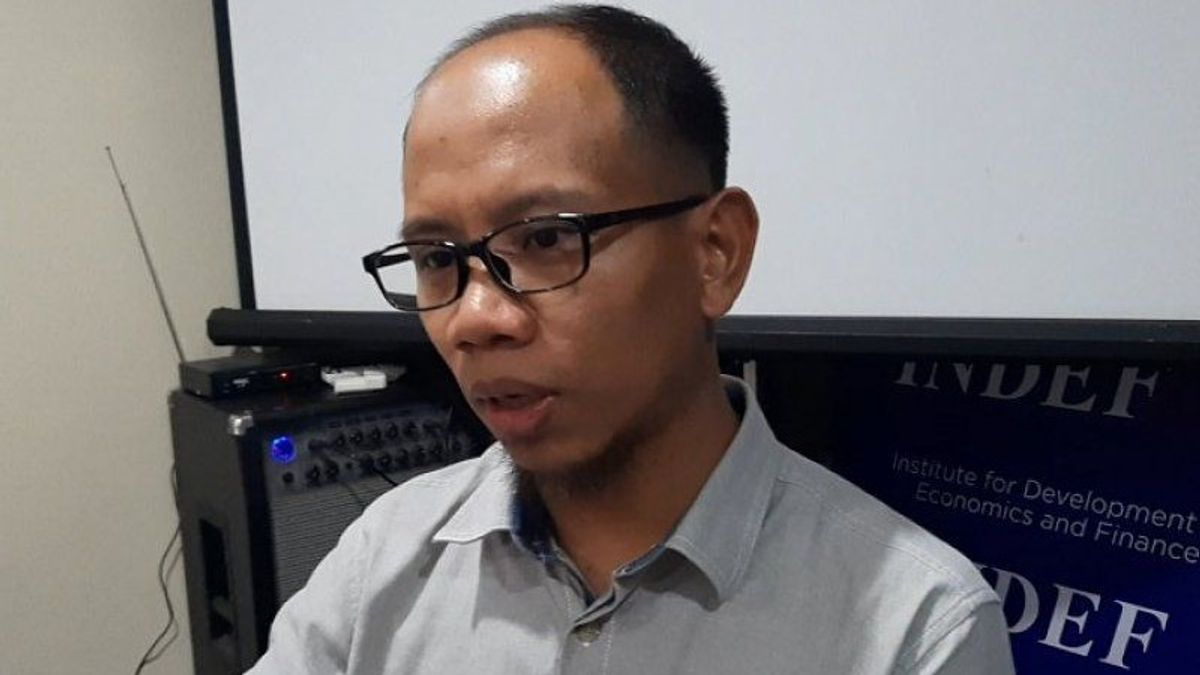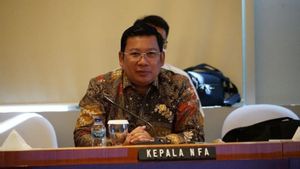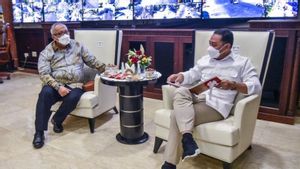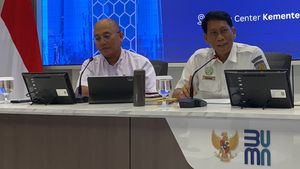JAKARTA - Deputy Director of the Institute for Development of Economics and Finance (Indef) Eko Listiyanto said, there are several strategies that local governments need to implement to effectively suppress and control food inflation.
One of them is optimizing the Special Allocation Fund (DAK) and the General Allocation Fund (DAU).
Eko said, the government is also important to provide storage space or cold storage in production centers and in the market to anticipate a surge in demand.
In addition, market operations must also be maximized in order to be more targeted.
"Some of the most urgent to control regional inflation is the optimization of DAK and general transfer funds (DTU) for inflation control, cold storage in production centers and in the market to anticipate a surge in demand, as well as market operations on target," he said.
Furthermore, Eko said, the next recommendation is related to efforts to reduce food prices and strengthen the synergy of the Central and Regional Inflation Control Team (TPIP-TPID) through the National Movement for Food Inflation Control (GNPIP) to accelerate price stabilization.
Moreover, said Eko, Coordinating Minister Airlangga has also asked regional heads whose inflation rates are above the national level to reduce inflation in the months ahead to below five percent.
Eko assessed that GNPIP indeed played an important role in controlling food inflation in the regions. However, so that GNPIP's work is more optimal, it needs support.
"GNPIP has a strategic position because it is a forum for cross-stakeholders coordination in the regions. However, budget ammunition is still needed to carry out price stabilization recommendations in the regions, such as DAK, the DTU," concluded Eko.
Previously, Coordinating Minister for Economic Affairs Airlangga Hartarto explained various recommendations for the action of the Central and Regional Inflation Control Team (TPIP-TPID) in the context of extra efforts to stabilize food prices and security.
The reason is, 27 provinces, 66 regencies/cities whose inflation rates are still above the national level.
"The Governor, Regent, Mayor whose inflation rate is above the national level is asked to reduce inflation in the months ahead to below 5 percent," said Coordinating Minister Airlangga.
The recommendations are the expansion of cooperation between regions (KAD), the implementation of market operations, and the provision of transportation costs subsidies sourced from the APBN. In addition, it is also recommended to accelerate the implementation of the yard food planting program to anticipate high demand at the end of the year, as well as the preparation of the Strategic Food Commodity Balance for ten strategic commodities in their respective regions.
"Assisted by the National Food Agency, it is also recommended to strengthen infrastructure for agricultural products, including storage with cold storage, especially in production center areas. Then, the use of unexpected expenditures in their respective APBDs to control inflation in accordance with the circular of the Minister of Home Affairs, as well as optimizing physical DAK for thematic food security and DTU," explained the General Chairperson of the Golkar Party DPP.
SEE ALSO:
Deflation
Meanwhile, the Executive Director of CORE Indonesia Mohammad Faisal emphasized that annual trends show that in the third quarter there is usually a decline or even deflation. However, this will not last long if the government increases the price of fuel.
"This annual level (inflation) can change when someone is out of habit, policy factors. Or external factors. For example, if the increase in fuel in September, the inflation will be high immediately, it could be 2-3 percent in one month, if it increases by 30 percent, yes," said Faisal.
In addition, Faisal said, regional inflation tends to be dynamic, depending on the changing places and conditions. If the central government says that the regions must suppress inflation, that's actually the most relevant thing in regional control is food.
"So if there are not enough areas imported from other areas. Control the production and stock, there should be no shortages," explained Faisal.
However, continued Faisal, local governments will find it difficult to control their inflation if the central government issues a policy to increase fuel prices.
"If fuel is increased, it means central policy, it is difficult for the regions to control, because the push for policies to increase fuel by the center has too big an impact over the efforts that can be carried out by each region," said Faisal.
The English, Chinese, Japanese, Arabic, and French versions are automatically generated by the AI. So there may still be inaccuracies in translating, please always see Indonesian as our main language. (system supported by DigitalSiber.id)
















